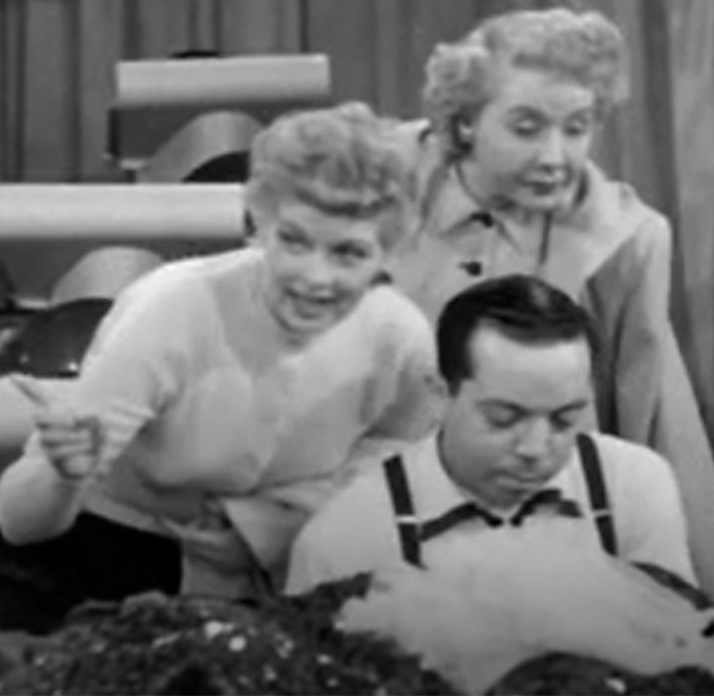The character of the pianist in the third episode of I Love Lucy illustrates the kinds of functions a minor character can perform without dialogue. Like many minor characters, the pianist functions as a device to highlight traits in the major characters. In this case, those characters are Lucy and Ricky. When Lucy enters the room, the pianist is playing a song on the piano. She moves to ask the pianist if this is where Ricky’s audition is, but she is visibly reluctant to interrupt his playing/ She instead chooses to ask the girls there instead. The pianist is a way for the audience to see Lucy’s timidness, and politeness by not interrupting the music. On the other hand, when Ricky enters the scene he enters with a loud voice greeting the pianist, Marco, and the girls in a loud booming voice. The piano playing ceases promptly. The pianist stopping the music for Ricky shows Ricky takes control of the room, in large contrast to Lucy’s entrance. The pianist can also be considered as an example of a ‘stock’ or ‘type’ character. A stock character being: “one whose character space is small, flat & underdeveloped”, and a type character being one whose “motivation and function are already established, often linked to ethnicity or class.” (Anderson). The pianist could be considered a type character, as musicians advanced the jazz movement in the 1920s. Thus, a stereotype or image of a musician is one many could likely point to when I Love Lucy first aired in the 1950s. As a type character, the character of the pianist also has a functional role in adding a completeness to the scene. While Ricky and the girls collectively make up five characters in the scene, the pianist is significantly different from each of them in appearance and in profession. Commenting on the importance of ‘extra’ type roles, Will Straw writes in Screen that, “the relative absence of extras is also the absence of a social everydayness” (Straw). The pianist’s background and career add a greater sense of richness, depth, and everydayness to the scene, even though he does not play a significant role in the plot. The pianist almost exists as scenery, or as the music, rather than a real character within the scene. This is especially true when we consider the effect that the character has on the scene. In playing the piano, the pianist creates a welcoming atmosphere to the scene both visible and audibly, and in a way that wouldn’t be possible without him. The pianist is a type character who highlights traits in the major characters, and adds to the completeness and atmosphere of the scene.
Works Cited
Andersen, Joceline. Lecture on types, stock characters, and minor characters in I Love Lucy Moodle, Thompson Rivers University, 24 Jan. 2022, moodle.tru.ca. Video recording.
“The Diet.” I Love Lucy. Directed by Marc Daniels, performances by Lucille Ball, Desi Arnaz, and Marc Rizo, Desilu Productions, 1951.
Will Straw, Introduction, Screen, Volume 52, Issue 1, Spring 2011, Pages 78–81, https://doi.org/10.1093/screen/hjq057

Provide Feedback